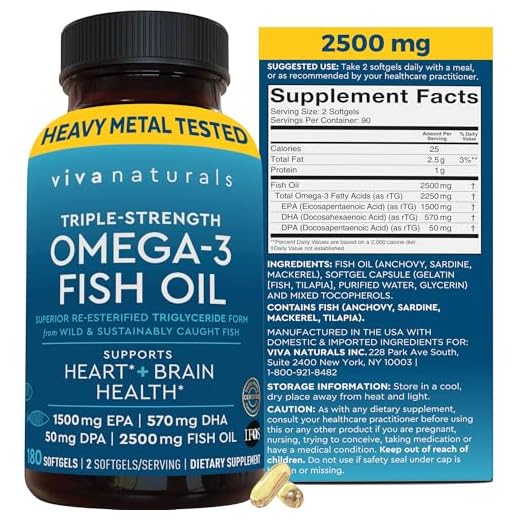



Fish oil is a popular supplement known for its high levels of omega-3 fatty acids, which have been shown to provide numerous health benefits. But when it comes to storing fish oil, there is some confusion as to whether or not it needs to be refrigerated.
Many people wonder if refrigeration is necessary to maintain the freshness and quality of fish oil. The answer depends on a few factors, such as the type of fish oil you have and the storage conditions.
Generally, most commercially available fish oils do not need to be refrigerated. The manufacturers usually process the oil in a way that keeps it stable and prevents it from going rancid. However, it is always a good idea to check the label or consult the manufacturer’s instructions for specific storage recommendations.
If you are using a liquid fish oil supplement, it is recommended to store it in a cool, dry place away from direct sunlight. Exposing the oil to heat, light, and air can accelerate its oxidation process, leading to a decrease in quality and potentially harmful compounds.
Is Refrigeration Necessary for Fish Oil?
Fish oil is a popular supplement that is rich in omega-3 fatty acids, which have been shown to have numerous health benefits. Many people wonder whether it is necessary to refrigerate fish oil to maintain its freshness and potency. The short answer is no, refrigeration is not necessary for fish oil.
Unlike fresh fish, which can spoil if not stored properly, fish oil is highly resistant to spoilage. It has a long shelf life and can remain stable for up to three years when stored in a cool, dark place away from heat and light sources. Refrigerating fish oil can actually cause it to thicken and become cloudy, which may lead some people to believe that it has gone bad.
Factors to Consider
While refrigeration is not required, there are some factors to consider when storing fish oil. Like all oils, fish oil is susceptible to oxidation, which can cause it to become rancid. To prevent this, it is important to choose a high-quality fish oil that has been properly processed and packaged to minimize exposure to oxygen.
In addition, it is important to keep fish oil away from heat and light sources, as these can accelerate oxidation. A cool, dark cupboard or pantry is an ideal place to store fish oil to ensure its freshness and potency are maintained.
Conclusion
In conclusion, refrigeration is not necessary for fish oil. As long as it is stored in a cool, dark place away from heat and light, fish oil can remain fresh and potent for an extended period of time. Be sure to choose a high-quality fish oil and follow the manufacturer’s instructions for storage to ensure maximum freshness and effectiveness.
The Importance of Proper Storage
Proper storage of fish oil is crucial to maintain its freshness and effectiveness. The oil can easily become rancid if not stored properly, which can negatively impact its taste and nutritional value. Here are some key points to consider when storing fish oil:
- Refrigeration: While it is not necessary to refrigerate all types of fish oil, many experts recommend storing it in the refrigerator, especially if it is in liquid form. Refrigeration helps slow down the oxidation process, which can extend the shelf life of the oil.
- Dark and Cool Place: If refrigeration is not possible, fish oil should be stored in a cool, dark place away from direct sunlight and heat sources. Exposure to light and heat can accelerate the breakdown of the oil.
- Airtight Container: Fish oil should be stored in an airtight container to minimize exposure to oxygen, which can also contribute to oxidation. This will help preserve the quality of the oil for a longer period.
- Expiration Date: Always check the expiration date of the fish oil before purchasing and make sure to use it before it expires. Expired fish oil may not provide the desired health benefits.
- Proper Handling: Avoid using a spoon or any utensil that has been in contact with other foods when dispensing fish oil. This can introduce contaminants and compromise the quality of the oil.
By following these guidelines, you can ensure that your fish oil remains fresh and potent, allowing you to reap the maximum benefits from this valuable supplement.
Factors Affecting Fish Oil Stability
Several factors can affect the stability of fish oil, potentially leading to rancidity and deterioration of its beneficial properties. Understanding these factors can help ensure the optimal storage and usage of fish oil.
1. Exposure to Oxygen
Oxygen is one of the major factors that can lead to fish oil oxidation. When fish oil is exposed to oxygen, it undergoes a process known as oxidation, in which the fatty acids in the oil react with oxygen molecules. This oxidation process can result in the formation of free radicals and the breakdown of fatty acids, leading to the development of off-flavors and a decrease in the nutritional value of the oil.
2. Exposure to Light
Exposure to light, particularly sunlight and fluorescent light, can also contribute to the oxidation of fish oil. Light contains energy that can initiate and accelerate the oxidation process. To prevent light-induced oxidation, it is recommended to store fish oil in dark-colored bottles or containers and keep them away from direct sunlight.
3. Heat
High temperatures can accelerate the oxidation of fish oil, leading to rancidity. It is advisable to store fish oil in cool, dry places, away from heat sources like stoves, ovens, and direct sunlight. Refrigeration can further help in maintaining the stability of fish oil, especially in warm climates or during hot summer months.
4. Packaging
The type of packaging used for fish oil can also impact its stability. Fish oil should be stored in containers that are airtight and resistant to light. Transparent bottles or containers are not recommended as they allow light to penetrate and can accelerate the oxidation process. It is best to choose glass or opaque plastic bottles for storing fish oil.
5. Age of the Oil
The age of fish oil can also influence its stability. As fish oil ages, it becomes more susceptible to oxidation and rancidity. It is recommended to check the expiration date of fish oil before purchasing and consume it within the recommended timeframe.
By considering these factors and taking proper storage precautions, you can maintain the stability and quality of fish oil, ensuring its effectiveness and benefits.
Best Practices for Storing Fish Oil
Proper storage of fish oil is essential to ensure its freshness and maintain its potency. Here are some best practices for storing fish oil:
1. Keep it cool
Fish oil should be stored in a cool place, away from direct sunlight and heat sources. The ideal temperature for storing fish oil is between 15°C and 25°C (59°F and 77°F). Avoid storing it in the refrigerator as extreme cold temperatures can cause condensation and affect the oil’s integrity.
2. Seal it tight
Always make sure the fish oil bottle is tightly sealed after each use. Exposure to air can cause oxidation and degrade the quality of the oil. Additionally, keeping the bottle tightly closed helps prevent any contaminants from entering and affecting the oil’s purity.
3. Avoid exposure to oxygen
Oxygen can accelerate the oxidative process and degrade the quality of fish oil. It is recommended to transfer the fish oil to a smaller opaque or dark-colored container if the original bottle is almost empty. This helps minimize the amount of oxygen in contact with the oil.
4. Store it upright
Keep the fish oil bottle upright to minimize the amount of surface area exposed to air. Storing it upright also helps prevent leakage and ensures that the oil is evenly distributed throughout the bottle.
5. Check the expiration date
Always check the expiration date before purchasing or consuming fish oil. Expired fish oil may not provide the desired health benefits and might have a rancid taste. Discard any fish oil that has exceeded its expiration date.
By following these best practices, you can ensure that your fish oil remains fresh, potent, and of the highest quality.
Signs of Spoilage in Fish Oil
Fish oil is a popular dietary supplement that contains omega-3 fatty acids, which are beneficial for our health. However, like any other food product, fish oil can spoil over time. It is important to know the signs of spoilage in fish oil to ensure its quality and efficacy.
1. Rancid Odor
One of the most noticeable signs of fish oil spoilage is a rancid odor. Fresh fish oil should have a mild oceanic smell. If the oil smells fishy, foul, or has a strong and unpleasant aroma, it is likely spoiled. This odor indicates the oxidation of the omega-3 fatty acids, which leads to a decrease in their potency and potential health benefits.
2. Discoloration
Fish oil should have a clear, golden color. If you notice any discoloration, such as a cloudy appearance or a darker hue, it may be a sign of spoilage. This change in color can indicate the degradation of the oil, compromising its quality and safety.
3. Unusual Taste
While fish oil is usually tasteless or has a mild fishy flavor, spoiled fish oil may have a bitter or rancid taste. If the oil tastes off or unpleasant, it is best to avoid consuming it, as it may not provide the expected health benefits and could cause gastrointestinal discomfort.
It is important to note that consuming spoiled fish oil may not pose immediate health risks, but it may be less effective in providing the desired omega-3 fatty acids and could potentially cause stomach discomfort or other mild side effects.
In summary, being able to recognize the signs of spoilage in fish oil is crucial to ensure its freshness and effectiveness. If you notice a rancid odor, discoloration, or an unusual taste, it is recommended to discard the fish oil and purchase a fresh bottle.
Remember to always store fish oil properly, in a cool and dark place, and check the expiration date to maximize its quality and benefits.
FAQ
Should fish oil be refrigerated?
Yes, it is recommended to refrigerate fish oil to help maintain its freshness and prevent it from going rancid.
What happens if fish oil is not refrigerated?
If fish oil is not refrigerated, it may go rancid more quickly, which can lead to the deterioration of its quality and potential health benefits.
Can I store fish oil in the pantry instead of the refrigerator?
While it is best to refrigerate fish oil, if it is stored in a cool, dark place like a pantry, it should still be relatively stable and safe to consume. However, be aware that it may not stay fresh for as long as refrigerated fish oil.









